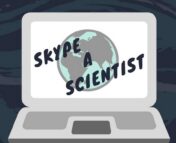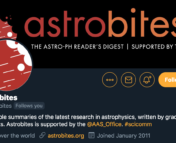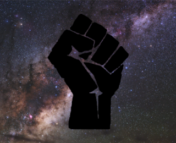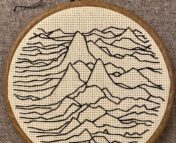This post is part of our series meant to showcase the various types of outreach activities you can do as a graduate student, as an undergraduate, or as an astronomer at any stage of your career! In each post, we’ll focus on one national organization and one local group.
National: Science Olympiad (by Briley Lewis)
What is Science Olympiad?
Science Olympiad is a middle school (Division B) and high school (Division C) science and engineering competition. Students participate in a variety of events on different science topics. They take tests to show their knowledge, complete hands-on lab experiments, or demonstrate something they’ve built. There are different levels of competitions that teams can participate in each year. They start with invitationals (local, and just for practice!) or regionals (the first level of competition), and then the top ranked teams move onto state, and then the national competition.
If you’re interested in astronomy, there’s always an event in each division that is directly about space science: Solar System or Reach for the Stars in Division B, and Astronomy in Division C. The topics change slightly each year to keep things fresh and interesting! There are plenty of events that draw on similar skills/content knowledge to astronomy/physics, too, such as Fermi Questions, Dynamic Planet, Meteorology, Crave the Wave, and Remote Sensing.
Why did you volunteer with Science Olympiad?
When I was in middle and high school, Science Olympiad was really how I got into astronomy. It helped me take an interest and build it into a foundation for my future career! I also had a ton of fun, made so many friends, and got to enjoy the thrill of competing with my team. It was one of my most formative experiences in high school for sure.
After high school, the more I learned about astronomy, I realized that it would have been so helpful to have had someone with that extra knowledge to ask questions of when I was studying for Science Olympiad! So, I reached out to my old high school team, and asked if they needed any help.
What do you do with Science Olympiad?
There are a lot of different ways you can help out with Science Olympiad. I helped as a “coach” for astronomy for a few years, going to meetings and being pretty hands-on, even doing mini-lessons with the students. Now, I am more of an advisor / expert to answer questions when needed, so each year the coaches give my contact info to the students in case they need anything. Also, students practicing for Science Olympiad test events need a practice exam, tailored to the content in the rules each year, so I write an astronomy test or two for them to learn from.
You can help out as a coach/advisor for specific events like this with a local team, or even get involved in the competitions — they always need volunteers to make the events run and experts to write the competition exams! There are so many ways to get involved depending on how much time you can commit and what expertise you have to offer.
This sounds interesting! How can I get involved?
If you have connections to a local or hometown team, reach out! I bet they’d love to have your expertise as a coach, and the national Science Olympiad organization has great resources for teachers/coaches. Additionally, you can see where there are tournaments held near you, and see if they need any volunteers. Check out Science Olympiad’s page for volunteer information and opportunities at the national level, and look at your state’s Science Olympiad website, too.
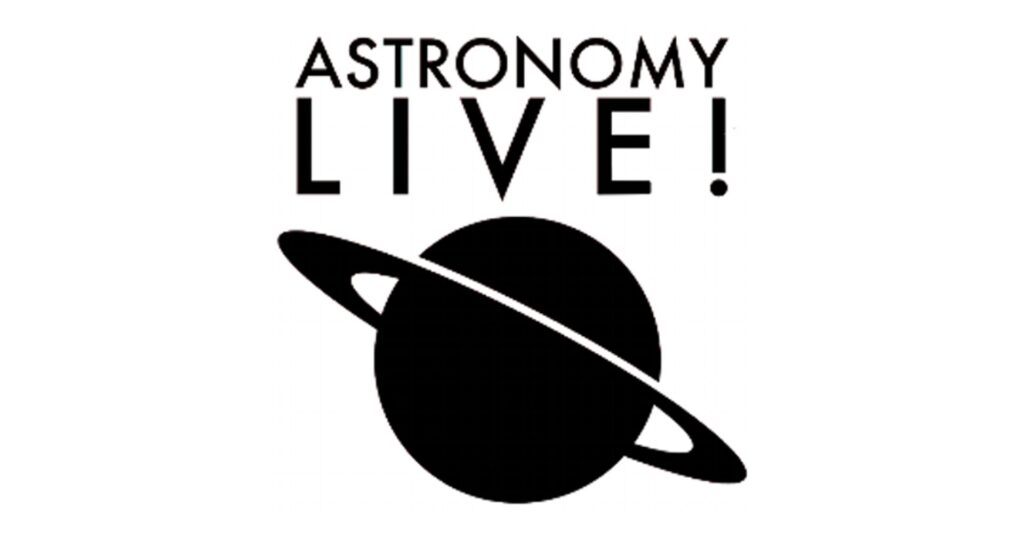
Local: Astronomy Live! (by Isabella Trierweiler)
What does Astronomy Live do?
Astronomy Live! is a graduate student-run outreach organization at UCLA. Our goal is to bring hands-on astronomy experiences to K-12 students in Los Angeles. Astronomy Live’s programming has two main components — a demonstration-based outreach effort aimed at younger students during the school year, and a more focused summer-long observing workshop for juniors and seniors in high school. Both programs are entirely free for schools and students, and we provide all necessary supplies, with the goal of making astronomy as accessible as possible.
Our science demos program serves elementary and middle school students in the LA area. We introduce students to physics and astronomy through demos such as a gravity table or comet making, either bringing our demos to the school or inviting the class to visit UCLA’s campus. Over the summer, we host a two-month long workshop with the goal of providing a research experience for students who would not be able to get exposure to hands-on research at their high schools. The students come to campus once a week to learn about observations and data reduction, carry out their own observations at the Lick Observatory on Mount Hamilton, and complete an introductory research project on anything from exoplanets to galaxy morphology!
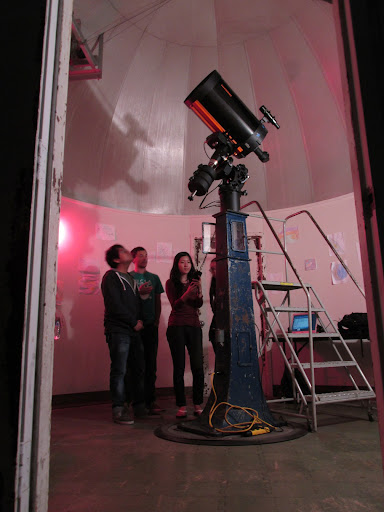
How does Astronomy Live! benefit students?
Beyond the teaching that we do through demos, the best feedback we’ve gotten about Astronomy Live is that we’re able to show kids that being a scientist is a possible and achievable goal. The idea that you could actually grow up to become a scientist can feel really abstract in the classroom, but carrying out your own mini experiments or seeing a college campus can help make the idea feel more real.
The most unique aspect of our summer program is the chance to observe at Lick Observatory. I think it’s really rare that high school students are able to take their own data on such a large telescope and Lick Observatory has been really fantastic in giving us full nights of observing over the summer and training our graduate student leads. Building a relationship with that telescope informed the rest of the curriculum. Prior to observing we teach the students about light and basic telescope designs. We introduce them to the different types of images they need to take when observing, teach basic coding in python, and outline the process of turning raw data into full-color images.
Recently, a really great experience for me was when one of our previous Summer Workshop students ended up coming to UCLA as an undergraduate in astronomy! It was awesome to hear that our program inspired someone to continue exploring research. However, whether or not our students decide to continue in STEM, the skills of analysis, problem solving, and presenting one’s work are really beneficial. All of our students come away with a concrete (and cool!) experience to reference when searching for future opportunities.
I’d like to start something like this at my institution! How do I get started?
Both of our programs are extremely feasible and relatively low cost, graduate student volunteers are the main requirement!
The start-up costs for science demos vary – our simplest, the pocket solar system, only requires paper and pens, while our most elaborate is an inflatable planetarium. NASA has several great guides to physics and astronomy demos with varying levels of equipment, as well as a ton of general resources for educators. A lot of physics departments also keep a store of demos for use in courses, so that’s a great place to start as well! When virtual events are needed, we use Universe Sandbox, a really fun way to simulate outer space.
Our summer program requires about $1000 a year, most of which goes towards training graduate students to observe at Lick. If your university does not have access to a telescope, a lot of data is publicly available from telescopes like Hubble or the Sloan Digital Sky Survey. All of the tools we use for data reduction are also free, including python and DS9 (or JS9, an online version). We borrow laptops from the university to lend to any students who do not have their own, and keep all of our data and scripts online (SciServer is a great option) so that students do not need any additional software to work on their projects.
These types of outreach programs are so flexible in terms of resources and scale, so all of these ideas can absolutely be tailored to meet the needs of your community!
Astrobite edited by: Graham Doskoch and Sahil Hegde
Featured image credit: Astronomy Live! and Science Olympiad

